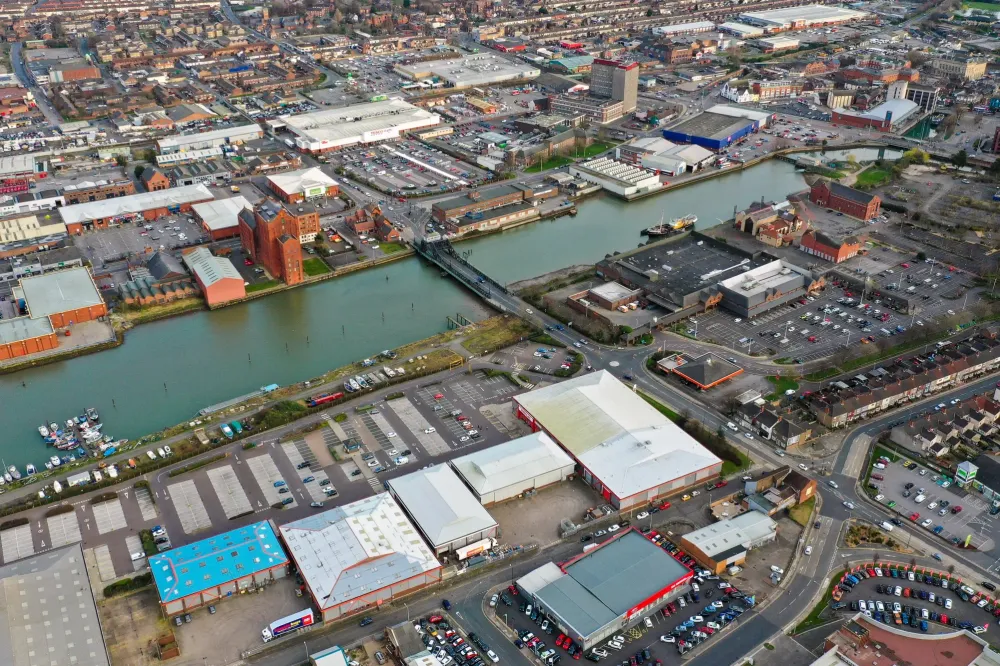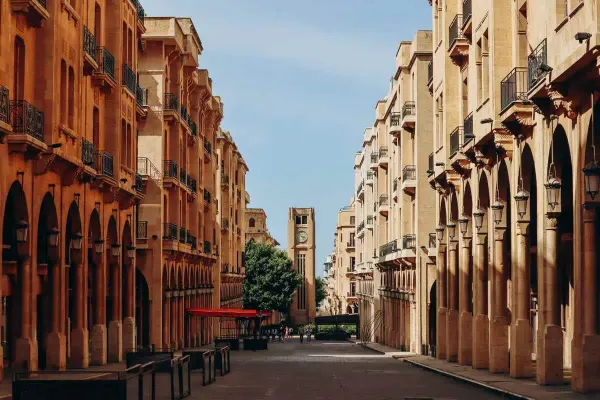Inside Grimsby’s grand plan to become a tourist destination
Grimsby faces a challenging reputation. For many, it’s seen as the fallen fishing capital, associated with undesirable elements and fitting a name that feels grim and bleak. “If the first person off the boat had been called ‘Nice’, it would have been much easier,” admits Richard Askam. “But we got Grim.”
Askam believes Grimsby deserves better and aims to change perceptions. A proud Grimbarian, he juggles multiple roles, including project director of Projekt Renewable (PRG), a new initiative promoting local opportunities in sustainable energy and engaging the next generation to propel Grimsby forward. “I want to show people there’s something here for them,” he shared at PRG’s base, a bright solar-powered park of shipping containers, opened in 2023 next to Grimsby’s Fishing Heritage Centre. “This is a billboard for the possible.”
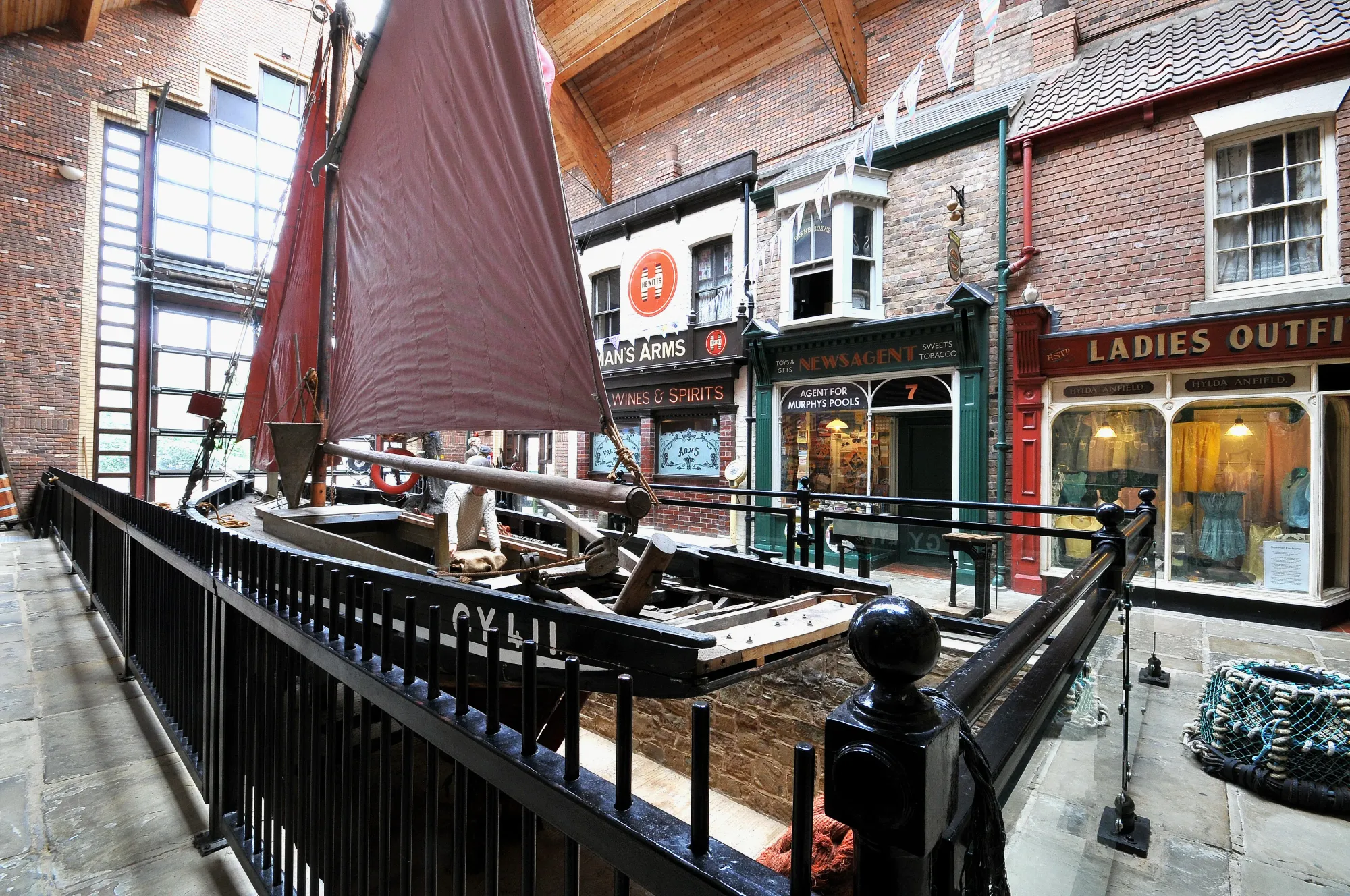
This aligns more closely with the town’s origin story. According to folklore, Grimsby was founded by Grim, a Danish fisherman who heroically saved young Prince Havelok of Denmark before settling on the Humber Estuary. This summer, Grim returns. A statue celebrating the legend, removed from its spot outside Grimsby College in 2006 after repeated vandalism, has been restored. It will be unveiled on June 4, joining a display about Grim at the Fishing Heritage Centre.
“It’s no accident we’re located here, next to the past,” Askam explains. He views PRG as a bridge to the future – renewables are big business in Grimsby – but “there’s a huge disconnect between what’s happening and the awareness of it.”
Askam envisions this site, on Alexandra Dock, as an education and tourism hub. Besides hosting groups interested in renewables, the plan includes pop-up events and boat tours to the turbines of the Humber Gateway wind farm. “We want to activate this area, remind people there’s water in their town.”
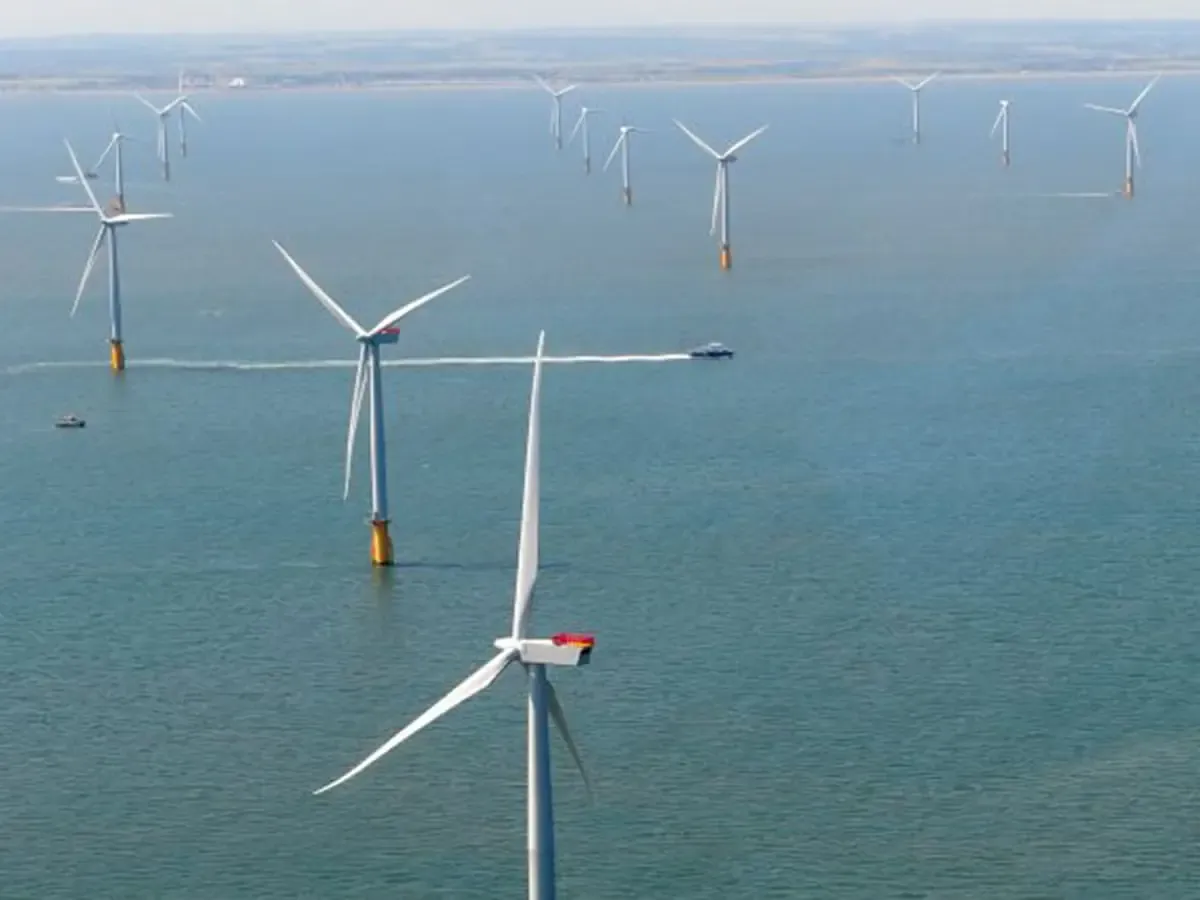
That might sound odd, given Grimsby’s fame as a major fishing port. But it’s true. The town center is inland of the estuary; you could easily visit local shops or the Time Trap Museum (detailing Grimsby’s story in the old police cells) and not realize the estuary is nearby.
Will Douglas is doing his part to draw people towards the port end of town. In 2018, he transformed a 19th-century mission church on the neglected industrial outskirts into Docks Beers, a craft brewery, taproom, street food venue, and high-caliber events space, with its own festival (DocksFest, July 6).
“It seemed crazy there was no brewery in Grimsby, and we wanted to contribute to the town,” Douglas tells me over a glass of Hard Graft. “We wanted to be close to the docks, in an iconic building, making beers with names reflecting the people. We felt if we got the story right, we had a chance of success – it could be a destination.”
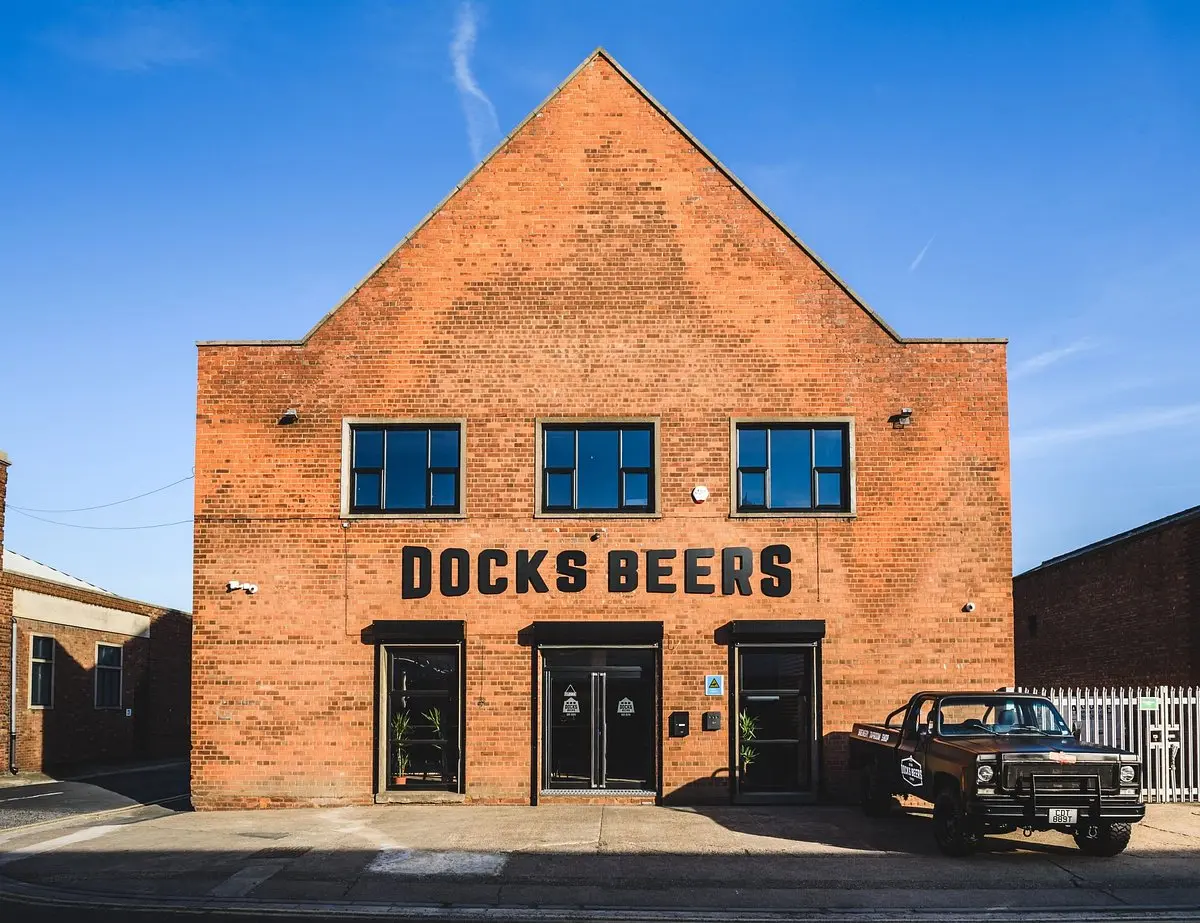
It’s working. Acts such as the Hoosiers, Slade, Stereo MC’s, and Lloyd Griffith have performed here, and a “Docks effect” has positively impacted nearby businesses.
Visiting Grimsby’s actual docks – a “town within a town” – isn’t quite so straightforward or welcoming. While the fishing fleet is long gone, the port remains a powerhouse, now focused on renewables, imports, and fish processing – 70 percent of the UK’s fish is processed here. Since it’s a working dock, entry requires proof of identity and a valid reason for being there. Fortunately, there are several good reasons.
For starters, there’s Coffee on the Docks, an old wages office turned cool café. There’s also Alfred Enderby, an award-winning smokehouse, founded in 1918, supplying haddock and salmon to notable chefs. Patrick Salmon took over the business in 2015 and, as his name suggests, is passionate about both Grimsby and fish.
He shows me around, opening the smokehouse chimneys. The interiors are encrusted with 100 years of tar, the unique if gruesome-looking substance that gives the fish its distinctive flavor. Salmon runs smokehouse tours and plans to expand next door to add a kitchen for tasting demos.
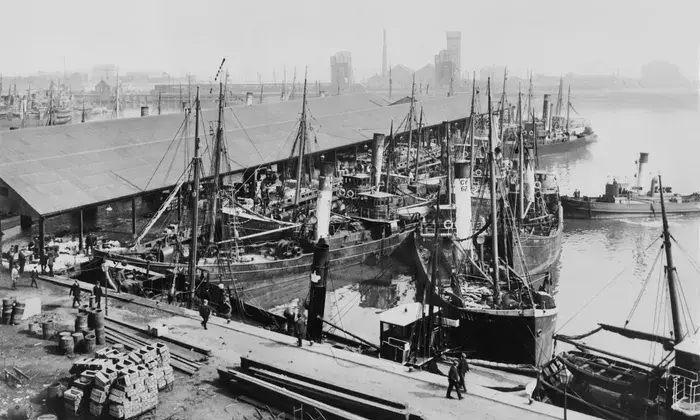
There are about 90 historical buildings on the docks, and though many are no longer in use, “rent holidays” are available to tenants willing to renovate.
Emma Lingard, the corporate communications manager of Associated British Ports and a tour guide, shows me the Kasbah, an area of narrow, angled alleys built between old railway tracks, designated as a conservation area in 2017. We pass a house linked to a Soviet spy (“a tip-off call was made from here about the Kennedy assassination,” she tells me) and the enormous Grade II* listed Ice Factory, which once produced up to 1,200 tons of ice a day; plans have just been approved to turn it into a 1,000-seater venue and large hotel.
“Some of the movie Atonement was filmed there,” Lingard tells me. The docks were also used in This Is England and, in 2023, for scenes in the Netflix series Bodies.
“The docks are moving forward, and we see the next big thing as film and TV – film companies love it because they get a private estate with plenty of space,” says Lingard. “Grimsby was a small Georgian town, and when the railway arrived, entrepreneurs saw opportunities and capitalized on them. It’s the same now. We must stop living in the past, embrace the present, and look to the future. Take a risk. It’s not the end of the line for Grimsby.”


